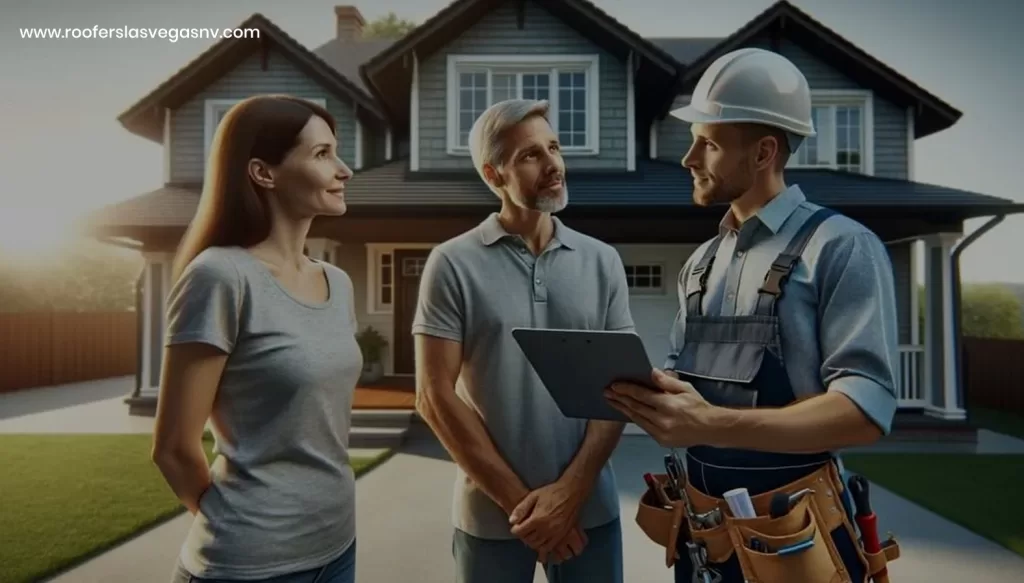How long does a roof estimate take?
When it comes to maintaining or replacing your roof, getting a roof estimate is a crucial first step. But how long does it take to get an accurate estimate? Understanding the factors involved can help set your expectations and streamline the process.

What is a Roof Estimate?
A roof estimate is a detailed calculation provided by roofing contractors to inform homeowners about the potential costs of repairing or replacing their roof. This estimate includes labor, materials, and other associated costs.
Definition and Purpose
A roof estimate serves as a financial blueprint, allowing homeowners to budget for the project and compare different contractors’ offers.
Key Components of a Roof Estimate
- Labor costs
- Material costs
- Time frame for completion
- Additional services (e.g., removal of old roofing)
- Contingency costs
Factors Affecting the Duration of a Roof Estimate
Size of the Roof
Larger roofs require more time to measure and assess, leading to longer estimate times.
Complexity of the Roof Design
Roofs with multiple angles, dormers, or varying pitches are more complex and take longer to evaluate.
Type of Roofing Material
Different materials have different pricing and installation complexities, influencing the time needed to prepare the estimate.
Current Condition of the Roof
A roof in poor condition might require a more detailed inspection to assess damage and necessary repairs.
Weather Conditions
Bad weather can delay inspections and measurements, affecting the overall time frame.
Contractor’s Schedule
Busy contractors may take longer to fit your estimate into their schedule.
The Initial Contact
Scheduling an Appointment
The first step is to contact a roofing contractor and schedule an appointment. Availability can vary, impacting how soon the process can start.
Information to Prepare
Having details about your roof, such as its age and any visible damage, can help speed up the initial consultation.
On-Site Inspection
What Inspectors Look For
Inspectors will examine the roof’s structure, shingles, flashing, gutters, and any signs of damage or wear.
Duration of the Inspection
Typically, an on-site inspection can take anywhere from 30 minutes to a few hours, depending on the roof’s size and complexity.
Detailed Measurements and Calculations
Importance of Accurate Measurements
Accurate measurements are crucial for a reliable estimate. Contractors will measure the roof’s dimensions, pitch, and any unique features.
Time Taken for Calculations
Once measurements are taken, contractors need time to calculate the total area, material requirements, and labor costs.
Gathering Material Quotes
Contacting Suppliers
Contractors will reach out to their suppliers to get current prices for the necessary materials.
Comparing Prices
This step involves comparing quotes from different suppliers to ensure the best prices for quality materials.
Compiling the Estimate
Putting All the Information Together
All gathered information, from labor costs to material prices, is compiled into a detailed estimate.
Reviewing and Finalizing the Estimate
Contractors review the estimate to ensure accuracy before presenting it to the homeowner.
Presenting the Estimate to the Homeowner
Methods of Delivery
Estimates can be presented in person, via email, or through an online portal, depending on the contractor’s preferences and the homeowner’s convenience.
Explaining the Details
Contractors should take the time to explain each part of the estimate, ensuring homeowners understand the costs and services included.
Typical Time Frame for a Roof Estimate
General Time Ranges
On average, a roof estimate can take anywhere from a few days to a week, depending on the factors mentioned.
Variations Based on Specific Factors
Complex projects or those requiring special materials may take longer to estimate accurately.
How to Expedite the Roof Estimate Process
Tips for Homeowners
- Provide detailed information upfront
- Be flexible with scheduling
- Choose contractors with good reviews and efficient processes
Tips for Contractors
- Use technology for faster measurements
- Maintain good relationships with suppliers
- Streamline the estimation process
Common Delays in Getting a Roof Estimate
What Causes Delays
- Weather interruptions
- Contractor’s busy schedule
- Waiting for supplier quotes
How to Avoid Them
- Plan ahead and schedule early
- Choose a contractor with a manageable workload
- Ensure all necessary information is readily available
Importance of a Detailed Roof Estimate
Benefits of a Comprehensive Estimate
A detailed estimate helps avoid unexpected costs and ensures all aspects of the project are covered.
Risks of a Rushed Estimate
Rushed estimates can miss critical details, leading to cost overruns and potential issues during the project.
Questions to Ask Your Roofing Contractor
Ensuring Clarity and Transparency
- What does the estimate include?
- Are there any potential additional costs?
- How long will the project take?
Key Points to Cover
- Warranty details
- Payment schedule
- Contractor’s experience and references
Conclusion
Getting a roof estimate is a vital step in any roofing project. While the time it takes can vary, understanding the process and factors involved can help you prepare and ensure you get a reliable estimate. Take your time to choose the right contractor and don’t hesitate to ask questions to ensure you understand the estimate fully.
FAQs
How soon should I get a roof estimate after noticing damage?
It’s best to get a roof estimate as soon as you notice damage to prevent further issues and plan for repairs.
Can I get a roof estimate without an on-site inspection?
While some contractors might offer rough estimates based on photos or descriptions, an on-site inspection is crucial for an accurate estimate.
How do I choose the right roofing contractor for an estimate?
Look for contractors with good reviews, proper licensing, and experience in the type of roofing you need.
What should I do if the estimate seems too high?
Get multiple estimates for comparison and discuss the details with your contractor to understand the costs.
How often should I get my roof inspected?
Regular inspections are recommended annually or after severe weather events to maintain your roof’s condition.
